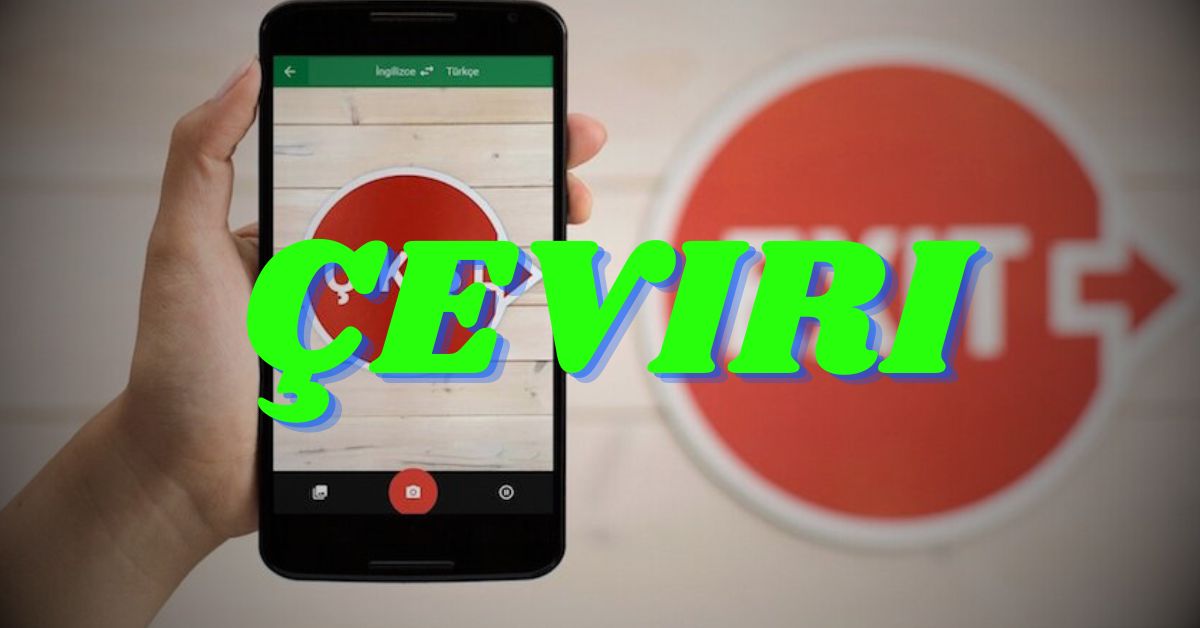
Contents
Introduction of Çeviri
The Turkish word “çeviri” translates to “translation,” and it signifies much more than simply converting words from one language to another. “Çeviri” encompasses the art of conveying the essence, tone, and meaning of a message accurately and thoughtfully. In the context of language and communication, it represents the bridge between cultures, facilitating understanding across diverse linguistic landscapes.
The aim of this article is to explore the world of “gg trad,” delving into its importance in ensuring accurate translations, the challenges faced by translators, and the value it brings in fostering global connections. Understanding the intricacies of translation can offer a greater appreciation for the role it plays in our modern, multilingual world.
Understanding Çeviri (Translation) in Turkish
Definition
Çeviri, in Turkish, refers to the process of translating text from one language to another. It involves more than just word-for-word substitution; it requires a deep understanding of both languages and cultures to convey the intended meaning accurately.
History of translation in Turkish
Translation has played a significant role in Turkish history and culture for centuries. The Ottoman Empire, known for its intellectual and cultural achievements, engaged in extensive translation activities, bringing foreign texts into the Turkish language and promoting knowledge exchange. This historical legacy has shaped the development of translation practices in Turkey.
Types of translation
Translation encompasses a wide range of fields, each with its own specific requirements and challenges. Some common types of translation include:
- Literary translation: Translating works of literature, such as novels, poetry, and plays.
- Technical translation: Specializing in the translation of technical documents, manuals, and scientific texts.
- Legal translation: Translating legal documents, contracts, and court proceedings.
- Medical translation: Translating medical texts, research papers, and clinical documents.
- Business translation: Translating business correspondence, marketing materials, and financial reports.
These are just a few examples of the diverse types of translation that are practiced in Turkey. The specific requirements and challenges associated with each type of translation vary depending on the nature of the text and the target audience.
The Importance of Accurate Çeviri
Cultural nuances
Accurate translation goes beyond simply translating words; it requires a deep understanding of cultural nuances and context. Different cultures have unique customs, values, and expressions that may not have direct equivalents in other languages. A translator must be able to capture the essence of the original message while adapting it to the cultural context of the target language.
Communication breakdowns
Inaccurate translation can lead to serious communication breakdowns. Misunderstandings, misinterpretations, and miscommunications can have significant consequences, especially in fields such as business, diplomacy, and healthcare. An inaccurate translation can result in financial losses, damage relationships, and even cause harm.
Professional and academic applications
Accurate translation is essential in various fields, including business, diplomacy, and academia. In business, accurate translation is crucial for effective communication with international clients and partners. In diplomacy, accurate translation is essential for ensuring that messages are conveyed accurately and that misunderstandings are avoided. In academia, accurate translation is essential for research, publication, and international collaboration.
Challenges and Rewards of Çeviri
Language barriers
Translating between languages with different structures and cultural contexts can present significant challenges. Differences in grammar, syntax, and vocabulary can make it difficult to convey the intended meaning accurately. Additionally, cultural nuances and idioms may not have direct equivalents in the target language, requiring the translator to find creative solutions.
Technical terminology
Translating technical terms and specialized language can be particularly challenging. These terms often have specific meanings within their respective fields, and it is essential to ensure that the translation is accurate and precise. Translators may need to consult with experts or reference materials to ensure that they are using the correct terminology.
Cultural sensitivity
Cultural sensitivity is crucial in translation. Translators must be aware of the cultural nuances and sensitivities of both the source and target languages. It is important to avoid cultural misunderstandings or offensive translations that could alienate the target audience.
Rewards and satisfaction
Despite the challenges, translation can be a rewarding profession. Successful translators experience a sense of accomplishment and satisfaction when they are able to convey the intended meaning accurately and effectively. They contribute to cross-cultural understanding and communication, and their work can have a significant impact on individuals, businesses, and society as a whole.
Tools and Technologies for Çeviri
Translation software
There are numerous translation software and tools available that can assist translators in their work. These tools can help with tasks such as translating large volumes of text, checking for errors, and improving the quality of translations. Some popular translation software options include:
- Trados Studio: A professional-grade translation software with advanced features for managing translation projects.
- Memsource: A cloud-based translation platform that offers a range of tools and features for translators.
- SDL Studio: A popular translation software with a user-friendly interface and powerful features.
Online translation services
Online translation services have become increasingly popular in recent years, offering quick and convenient translation solutions. These services can be useful for simple translations or for translating small amounts of text. However, it is important to note that machine translation may not always be accurate, especially for complex or specialized texts.
Human translators
For complex or specialized texts, human translators are still the best option. Human translators have the expertise and experience to accurately convey the meaning of the original text while considering cultural nuances and context. They can also provide valuable insights and recommendations to ensure that the translation is of the highest quality.
The Future of Çeviri
Technological advancements
Technology is rapidly transforming the field of translation. Advances in machine translation and artificial intelligence are making it possible to translate large volumes of text more efficiently and accurately. However, human translators will continue to play a vital role in ensuring the quality and accuracy of translations, especially for complex or specialized texts.
Globalization and intercultural communication
The increasing globalization of the world economy and the rise of intercultural communication have created a growing demand for translation services. As businesses and individuals interact with people from different cultures, the need for accurate and effective translation becomes more critical.
Emerging trends
Several emerging trends are shaping the future of translation. One such trend is the increasing use of machine translation. While machine translation has improved significantly in recent years, human translators are still essential for ensuring the quality and accuracy of translations. Another trend is the growing importance of localization, which involves adapting translated content to the specific cultural and linguistic context of the target audience.
FAQs
What is the difference between translation and interpretation?
Translation involves converting written text from one language to another. It requires a deep understanding of both languages and the cultural nuances associated with them. Interpretation involves converting spoken language from one language to another, often in real-time settings such as conferences or meetings. Interpreters must have excellent listening skills and be able to quickly process and convey information accurately.
How can I become a professional translator?
To become a professional translator, you typically need a combination of education, experience, and certifications. Many translators have degrees in foreign languages or translation studies. Additionally, gaining experience through freelance work or internships can be beneficial. Consider obtaining professional certifications, such as those offered by the American Translators Association (ATA), to demonstrate your expertise.
What are some common mistakes made in translation?
Some common mistakes made in translation include:
- Literal translation: Translating word for word without considering the cultural and contextual nuances of the languages involved.
- Incorrect terminology: Using incorrect or outdated terminology that can lead to misunderstandings.
- Lack of cultural understanding: Failing to understand the cultural context of the text and translating it in a way that is not appropriate for the target audience.
- Grammatical errors: Making grammatical mistakes in the target language.
What are the best online translation tools?
There are many online translation tools available, each with its own strengths and weaknesses. Some popular options include:
- Google Translate: A free online translation service that supports many languages.
- DeepL Translator: Known for its high-quality translations, especially for European languages.
- Babylon: A comprehensive translation software that offers both online and offline translation services.
- Reverso Context: A translation tool that provides context-based translations and examples from real-world usage.
- SDL Trados: A professional-grade translation software used by many businesses and organizations.
Conclusion
Recap
In this article, we have explored the world of çeviri (translation) in Turkish. We have discussed the definition, history, and types of translation, as well as the importance of accurate translation and the challenges and rewards associated with the profession.
Final thoughts
Translation plays a vital role in bridging cultural gaps and facilitating communication between people from different backgrounds. It requires a deep understanding of both languages and cultures, as well as a commitment to accuracy and precision. While the field of translation is constantly evolving, the demand for skilled translators will continue to grow as the world becomes increasingly interconnected.



